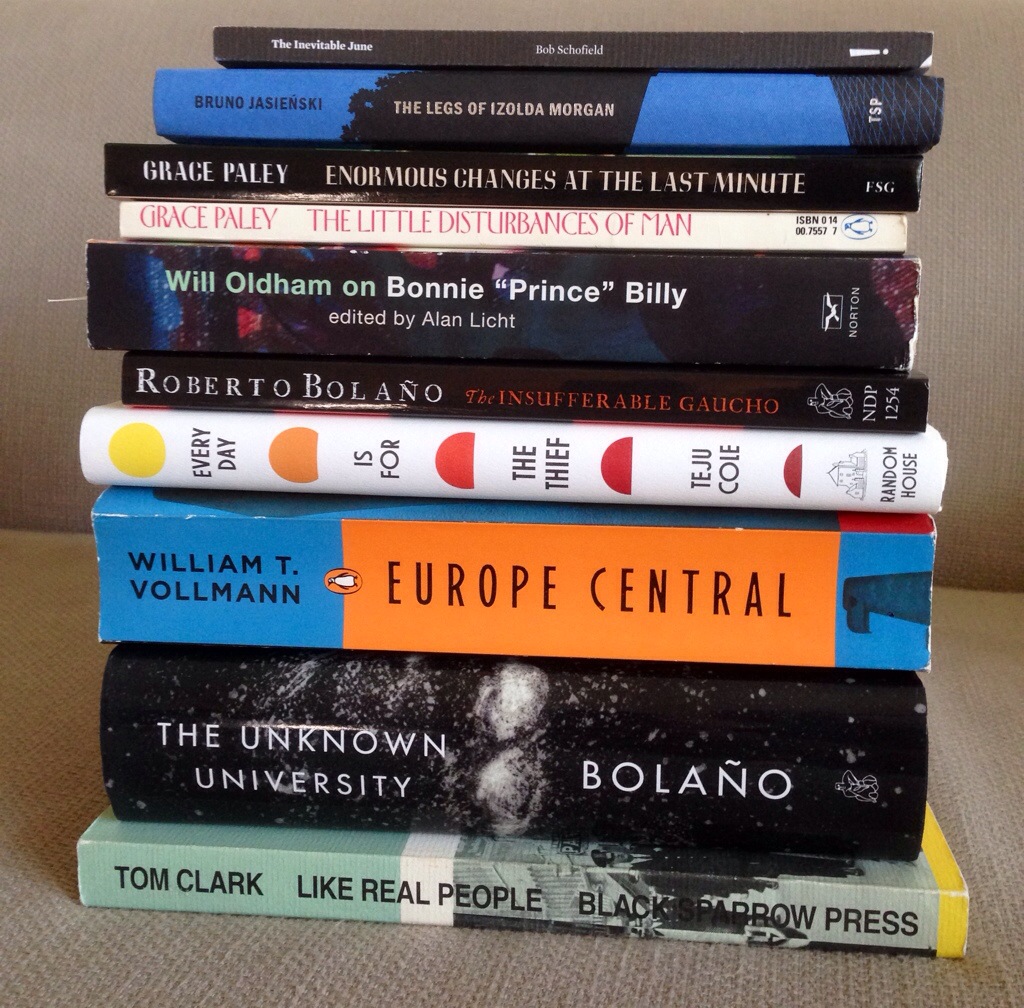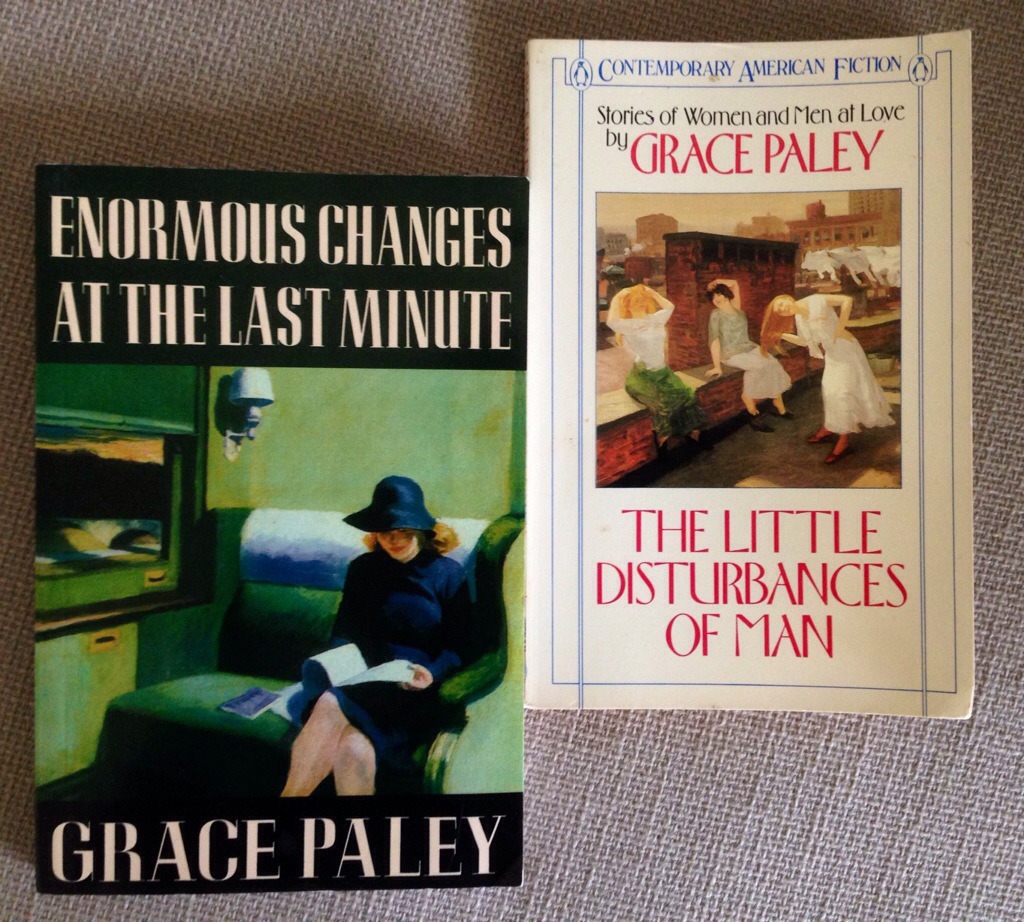“Wants”
by
Grace Paley
I saw my ex-husband in the street. I was sitting on the steps of the new library.
Hello, my life, I said. We had once been married for twenty-seven years, so I felt justified.
He said, What? What life? No life of mine.
I said, O.K. I don’t argue when there’s real disagreement. I got up and went into the library to see how much I owed them.
The librarian said $32 even and you’ve owed it for eighteen years. I didn’t deny anything. Because I don’t understand how time passes. I have had those books. I have often thought of them. The library is only two blocks away.
My ex-husband followed me to the Books Returned desk. He interrupted the librarian, who had more to tell. In many ways, he said, as I look back, I attribute the dissolution of our marriage to the fact that you never invited the Bertrams to dinner.
That’s possible, I said. But really, if you remember: first, my father was sick that Friday, then the children were born, then I had those Tuesday-night meetings, then the war began.Then we didn’t seem to know them any more. But you’re right. I should have had them to dinner.
I gave the librarian a check for $32. Immediately she trusted me, put my past behind her, wiped the record clean, which is just what most other municipal and/or state bureaucracies will not do.
I checked out the two Edith Wharton books I had just returned because I’d read them so long ago and they are more apropos now than ever. They were The House of Mirth and The Children, which is about how life in the United States in New York changed in twenty-seven years fifty years ago.
A nice thing I do remember is breakfast, my ex-husband said. I was surprised. All we ever had was coffee. Then I remembered there was a hole in the back of the kitchen closet which opened into the apartment next door. There, they always ate sugar-cured smoked bacon. It gave us a very grand feeling about breakfast, but we never got stuffed and sluggish.
That was when we were poor, I said.
When were we ever rich? he asked.
Oh, as time went on, as our responsibilities increased, we didn’t go in need. You took adequate financial care, I reminded him. The children went to camp four weeks a year and in decent ponchos with sleeping bags and boots, just like everyone else. They looked very nice. Our place was warm in winter, and we had nice red pillows and things.
I wanted a sailboat, he said. But you didn’t want anything.
Don’t be bitter, I said. It’s never too late.
No, he said with a great deal of bitterness. I may get a sailboat. As a matter of fact I have money down on an eighteen-foot two-rigger. I’m doing well this year and can look forward to better. But as for you, it’s too late. You’ll always want nothing.
He had had a habit throughout the twenty-seven years of making a narrow remark which, like a plumber’s snake, could work its way through the ear down the throat, half-way to my heart. He would then disappear, leaving me choking with equipment. What I mean is, I sat down on the library steps and he went away.
I looked through The House of Mirth, but lost interest. I felt extremely accused. Now, it’s true, I’m short of requests and absolute requirements. But I do want something.
I want, for instance, to be a different person. I want to be the woman who brings these two books back in two weeks. I want to be the effective citizen who changes the school system and addresses the Board of Estimate on the troubles of this dear urban center.
I had promised my children to end the war before they grew up.
I wanted to have been married forever to one person, my ex-husband or my present one. Either has enough character for a whole life, which as it turns out is really not such a long time. You couldn’t exhaust either man’s qualities or get under the rock of his reasons in one short life.
Just this morning I looked out the window to watch the street for a while and saw that the little sycamores the city had dreamily planted a couple of years before the kids were born had come that day to the prime of their lives.
Well! I decided to bring those two books back to the library. Which proves that when a person or an event comes along to jolt or appraise me I can take some appropriate action, although I am better known for my hospitable remarks.














